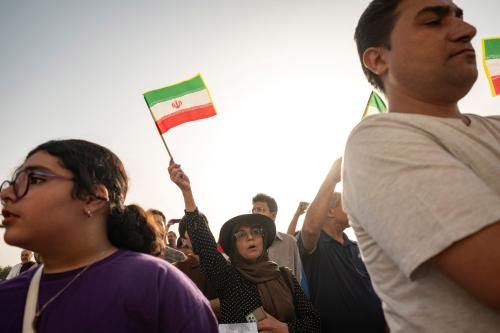On the morning of January 6, North Korea conducted its fourth nuclear weapons test at a site close to its border with China, claiming it had successfully conducted a thermonuclear weapon test for the first time. It will take days and possibly weeks to determine (to the extent that available data allow) the credibility of these claims, and what the test indicates about the North’s longer-term weapons potential and nuclear goals.
Based on the size of the seismic waves detected at various monitoring stations near North Korea, Pyongyang’s claim to have successfully tested a thermonuclear device is not credible. It is more plausible that the test might have been a “boosted” fission weapon, though this remains to be proven, as well. Regardless of the ultimate assessments of the expert community, the North’s four nuclear tests, its continued accumulation of fissile material, ongoing missile development, and active exploration of a sea-based delivery option reveal a clear determination to persist with all dimensions of its weapons program.
The political implications of the test are also indisputable. Pyongyang has again reminded the outside world that it is fully prepared to defy existing international agreements for its own purposes, regardless of the consequences for global or regional security or for nuclear non-proliferation as a whole. Irrespective of the costs that the international community has sought to impose on North Korea, these have not been sufficient to convince or compel Pyongyang to behave differently.
Perceived exceptionalism
North Korea is in a category all its own. It is the only state to formally withdraw from the Nuclear Non-Proliferation Treaty. It has enshrined nuclear weapons in its constitution and displays no interest in pursuing denuclearization on terms that any other country would deem acceptable. It is also the only state to test nuclear weapons in the 21st century. In the face of near-universal condemnation and repeated U.N. Security Council resolutions and enhanced sanctions, the North’s nuclear efforts persist. If anything, the leadership takes ample pride in the program, deeming the latest test as “100 percent based on our own wisdom, our technology, and our power…As a result, the DPRK has proudly risen to the front rank of nuclear states.”
The North Korean leadership has thus convinced itself (if not others) that its existence as an autonomous state derives directly from its possession of nuclear weapons. It explicitly contrasts its continued survival to the fate of Saddam Hussein in Iraq and Moammar Gadhafi in Libya, contending that nuclear weapons are essential to ensure the regime’s survival. It is no surprise that North Korea characterizes the supposed malign designs of outside powers to justify the prodigious costs of such a program, and the grievous implications for the well-being of its own citizens.
The North Korean leadership has thus convinced itself (if not others) that its existence as an autonomous state derives directly from its possession of nuclear weapons.
A common threat
What can be done? Additional U.N. Security Council sanctions will very likely be imposed, which (if nothing else) will demonstrate a shared stand in opposition to the North’s pursuit of nuclear weapons. The international community, including China and Russia, has long since muted the international “blame game” apportioning responsibility for the persistence and expansion of the North’s nuclear efforts.
For the indefinite future, the goal must be to sustain as broad an international coalition as possible, beginning with a shared recognition that the development and diversification of North Korea’s weapons programs is a common threat, not directed at any one country. But collective interests need to be translated into the actions of individual states, and the willingness of all to coordinate their actions.
North Korea’s weapons programs is a common threat, not directed at any one country.
China’s role will be critical in this process. At present, North Korea’s economic dependence on China continues to grow, even as Kim Jong-un defies Xi Jinping at every turn. It seems likely that attention will soon turn to additional restrictions on international banking activity in North Korea, and the role of Chinese banks will be central. Major Chinese banks do not want to find themselves sanctioned for their activities in the North and the day may not be too distant when these banks will need to choose: Do they sustain involvement in the North, even if it affects their much larger interests in international banking as a whole? The choice seems clear.
Such measures do not guarantee an outright cessation of the North’s nuclear activities, but they will make explicit the price that Pyongyang will have to pay if it continues or (even worse) expands its nuclear efforts. An explicit inhibition strategy is essential if the outside world is to deny North Korea the nuclear status it seeks, and prevent the North’s nuclear weapons program from having even more dire consequences.
The Brookings Institution is committed to quality, independence, and impact.
We are supported by a diverse array of funders. In line with our values and policies, each Brookings publication represents the sole views of its author(s).




Commentary
What should the world do about North Korea’s latest nuclear weapons test?
January 6, 2016